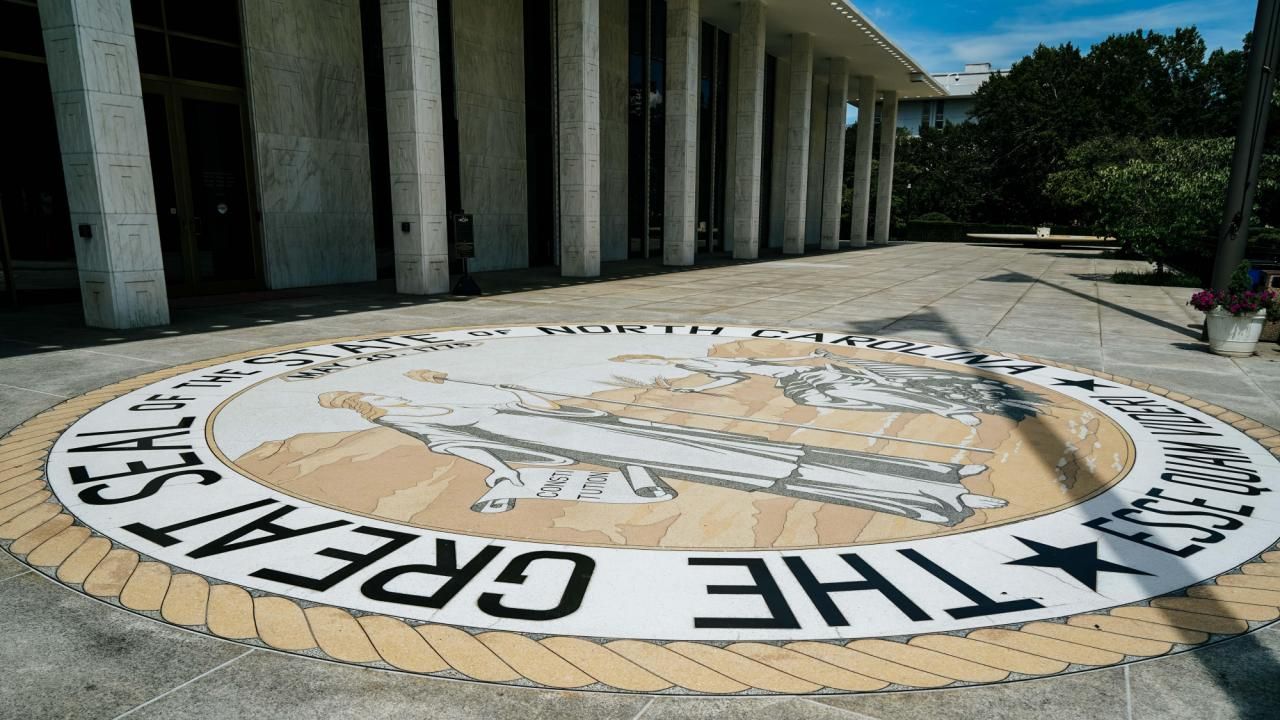NC legislature passes bill banning transgender women from playing women's sports

North Carolina could soon ban transgender women from playing women's sports from middle school through college in the state. The legislature's final vote on the bill passed Thursday, sending the bill to Democratic Gov. Roy Cooper to sign or veto.
Cooper is likely to veto the bill. He first became governor in 2016 due in large part to public outcry over a different GOP-backed law targeting transgender people, commonly called HB2.
"Instead of working to invest in our schools and pay our teachers more, Republicans are spending their time on political culture wars that have been proven to cost our state jobs," said Jordan Monaghan, a Cooper spokesman. "Republican governors in other states have vetoed these bills that bully vulnerable children because they know these decisions should be left to schools, parents and sports associations."
However, a potential veto is unlikely to be able to block the bill from eventually becoming law. Republicans have enough votes in both chambers to override his veto even if no Democrats join them, and a handful of socially conservative Democrats have voted in favor of the bill.
It's one of several bills Republican lawmakers have been advancing this legislative session aimed at transgender issues, particularly in schools and medical settings. No GOP lawmakers spoke publicly to defend the bill Thursday.
The N.C. Values Coalition, a conservative Christian group, applauded the bill's passage in a press release — and noted that nearly half of the states nationwide have passed similar bills in recent months and years.
“Today the General Assembly affirmed the rights under Title IX of female student athletes in North Carolina," said Tami Fitzgerald, the group's executive director. "Women and girls who train for countless hours and years in their sports will have a level playing field, and their opportunities will be protected if this legislation becomes law."
Rep. John Autry, D-Mecklenburg, has repeatedly made reference to his own 20-year-old transgender granddaughter during debates on the various anti-trans bills this year. He said Thursday he's sick of having to keep asking his fellow lawmakers to stop demeaning people like her.
"This is the time to bring an end to these attacks on LGBTQ and specifically transgender kids in the state," he said Thursday. "Please. Just stop it."
Despite the lack of public comments on the bill from Republicans Thursday, all of them voted for it. So did one Democrat, Rep. Michael Wray of Northampton County. It was a similar story in the state Senate Tuesday, when the bill passed with the support of every Republican plus one Democrat, Sen. Val Applewhite, D-Cumberland. Two other rural Democrats in the House who had previously voted for the bill, Reps. Shelly Willingham and Garland Pierce, voted against it Thursday. Neither explained their change.
Sen. Kevin Corbin, R-Macon, is one of the bill's top backers in the Senate. He has previously spoken about an incident in his part of Western North Carolina where he says a high school student was hurt in a volleyball game after being struck by a ball hit by a transgender girl on the other team.
"It would be unfair to our students if we ignored some biological realities that have measurable impact on outcomes in sports," Corbin said Tuesday when the bill passed the Senate.
Democrats have said the bill is unnecessary and mean-spirited, pointing to the fact that there are only a few transgender girls playing girls sports in North Carolina.
There are currently about 15 known transgender high school student-athletes in North Carolina, according to the North Carolina High School Athletic Association. There are 180,000 student-athletes who participated statewide last year.
It's something that could easily be handled on a case-by-case basis, opponents say, without a highly publicized statewide push like this.
"Were sending a strong message to a very vulnerable group of young people that says, 'You are different, you shouldn’t be allowed to socialize,'" said Rep. Deb Butler, D-New Hanover, who's one of the state's few out LGBTQ lawmakers. "It is cruel.”









